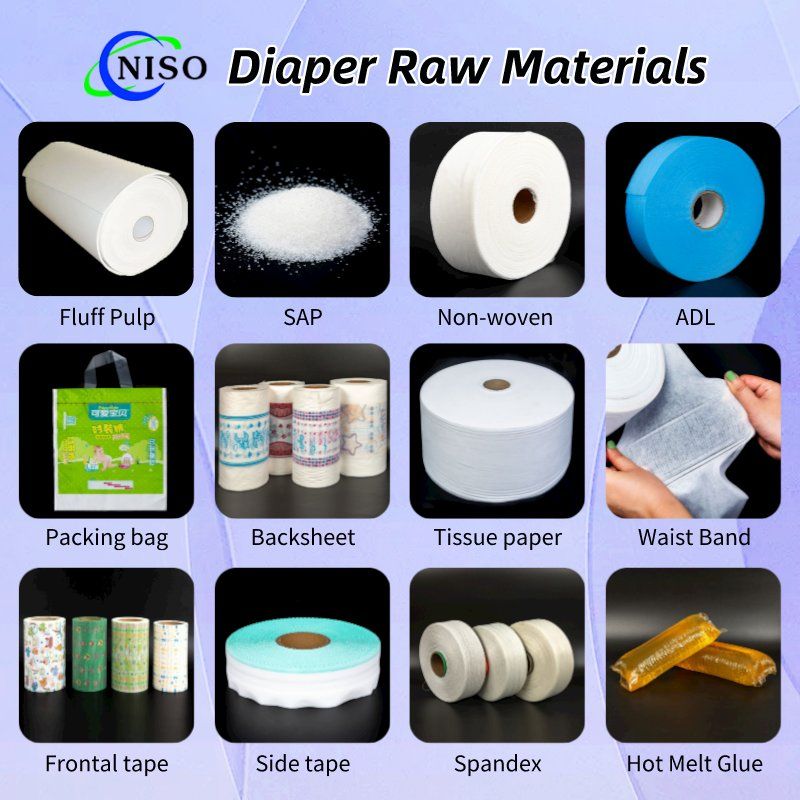Diapers are a daily necessity for millions of families, but have you ever wondered about the science behind their absorbency and comfort? Let’s break down the key raw materials of diapers.
1. Fluff Pulp
The core of most diapers is made from fluff pulp derived from trees like pine or eucalyptus. This natural material provides bulk and initial absorbency, quickly soaking up liquids.
2. Super absorbent Polymer (SAP)
A game-changer in diaper technology, SAP is a synthetic compound (sodium polyacrylate) that can absorb 30 times its weight in water. It locks moisture away from the skin, keeping babies dry for longer.
3. Topsheet Nonwoven
Soft, breathable, hydrophilic layers like hot air though nonwoven or spunbond nonwoven are used for the outer cover and inner liner. These materials are designed to feel gentle on the skin while allowing airflow.
4. Adhesives and Elastic
Hot-melt adhesives secure the diaper’s tabs, while elastic bands around the legs and waist ensure a snug fit. These components are often made from synthetic rubber or polymers.
5. Backsheet Film (Waterproof Layer)
A polyethylene film prevents leaks, while microporous coatings in eco-friendly diapers allow vapor to escape, reducing irritation.

About NISO
With 10 years of expertise in diaper raw materials, we deliver:
1. Full-range Supply: Covering nonwoven fabric, SAP, PE film, etc., enabling one-stop procurement;
2. Certified Quality: SAP complies with GB/T 22905-2008 standards; wood pulp microbial count ≤100 CFU/g;
3. Customization: Adjust nonwoven fabric weight, SAP particle size, and other parameters to meet product specifications.
